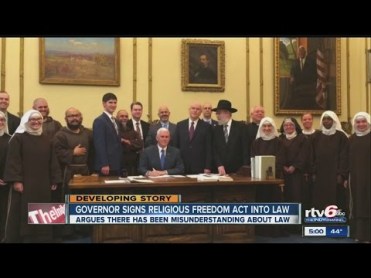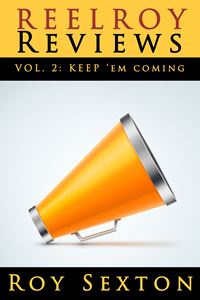Why was the last outing – Skyfall – so good? Yeah, Adele’s theme song was one of the best we’ve heard in decades, and director Sam Mendes (Revolution Road, American Beauty, Road to Perdition, Jarhead) applies a literary/theatrical craftsmanship that elevates film beyond mere verisimilitude to near-allegorical levels.
And, yes, Daniel Craig is the first actor to, you know, act while wearing Bond’s trademark tight-fitting bespoke suits and leaping tall fire escapes in a single bound – his chief charm being that he seems to sort of hate the character and plays Bond as someone who has a f*cking job to do, mate, and, if he has a shag and a drink along the way while slaying an army of vaguely malevolent thugs and baddies, so be it. He’s like your local cable guy if he were an international spy, that is, if said cable guy possessed the eyes of a malamute and the abs of an Abercrombie and Fitch model.
But the real reason Skyfall worked so freaking well? We had the BOGO (buy-one-get-one-free, kids) joys of Judi Dench AND Javier Bardem, who gave Craig/Bond a film “mother” and a film “brother” against whom to play some crackling “family” dysfunction, with a sparkling amount of wit and a smothering amount of tension. That acting trifecta of Dench, Bardem, and Craig also had the benefit of a great yarn to tell, a fractured fairy tale origin of Bond’s Oliver Twist-meets-Batman upbringing, culminating in nigh-Shakespearean death, destruction, and dismemberment … and that’s just describing what happened to his family vacation home in those eerily snowy Swiss/Austrian/Nordic (?) mountains where these films always seem to conclude.
Alas, Spectre, as fun as it is (and it is fun – kind of a rainbow sherbet to cleanse the palate after the heavy shepherd’s pie that was Skyfall), has no such shining, scene-stealing yins to Craig’s yang. Christoph Waltz, who becomes more of a cartoon every time I see him, seems like the perfect person to play a Bond villain … in 1968. However, in the postmodern grit and wit of Craig’s Bond, Waltz is a bit of a snoozer. I suspect Spectre‘s BIG reveal – the Bond mythos legend whom Waltz portrays – is meant to bring the kind of shock and awe delight of the similar unveiling of Benedict Cumberbatch’s character in Star Trek Into Darkness. It didn’t.
But (spoiler alert), at least, we get the signature cat … and thuggish henchman (Guardians of the Galaxy‘s Dave Bautista as the menacing and seemingly indestructible muscle Mr. Hinx … or Oddjob 2.0).
Ralph Fiennes as Bond handler “M” is no Dench, and he carries a constipated delivery in his few scenes that perhaps bespeaks some frustration that he had to retire Harry Potter‘s Darth Vader-esque Voldemort for a much less interesting 2nd banana role in the Bond franchise. At least Fiennes has nostrils in this series.
Much of the non-Craig spark comes from Naomie Harris’ Moneypenny. She is such a source of light in the film, I’m baffled why the filmmakers aren’t brave enough to mount a Bond/Moneypenny buddy flick. I’d go see that in a heartbeat. Ben Whishaw’s Q grows on me with each subsequent outing, as well, bringing a sardonic glee to torturing Bond with high-tech goodies the spy can’t have as 007 is perpetually in some kind of probationary limbo. (Isn’t Bond at risk of losing his job in every one of these latest forays? I realize Craig does a great job playing the rogue cop notes, but how is Bond still employed at this rate?)
John Logan’s screenplay packs a lot of punches (maybe two or three too many, yielding a near three-hour running time), but lacks the emotional wallop of Skyfall, which is to be expected, I suppose. The script’s biggest crime is falling prey to the two Bond women structural cliche, with the first character being a disposable femme fatale (the much more interesting Monica Bellucci) and the second a wary love interest who will be totally forgotten by the next film in the series (the bland Lea Seydoux).
(We also get one of the loopiest credits sequences in recent memory. Sam Smith’s song is pleasant enough, with a nicely subtle John Barry influence, but all the naked women writhing around with octopi and a shirtless Craig was just … troubling.)
The film aims to say something profound about how Orwellian our culture has become as we willingly submit to eye-in-the-sky surveillance and social media self-revelation, rendering privacy and freedom obsolete, all in a panicked and ultimately misplaced desire for security from nameless, faceless Terrorism with a capital “T.” In the process, we hand the keys to the kingdom to the real terror-mongers in our midst.
Ultimately, this zippy thesis gets lost in the shuffle – with four endings too many ranging from lots of buildings going “boom” to damsel-in-distress kidnappings to way too much Snidely Whiplash-monologuing from Waltz. Spectre also never capitalizes on the spookiness of its strongest sequence, the opening cat-and-mouse chase set among skull-and-crossboned revelers at Mexico City’s annual Day of the Dead celebration. Those early scenes impose a marvelously ominous claustrophobia and a sweaty delirium that the rest of film fritters away.
Spectre does a fine job drawing together the disparate threads of Casino Royale, Quantum of Solace, and Skyfall, with various villains from those prior episodes dancing in and out of the story – one of them intones to Bond, “You’re a kite dancing in a hurricane.” In fact, that cryptic phrase’s chaotic imagery could describe the entire Spectre viewing experience: volatile, transporting, thrilling even, but ultimately tangled up in its own aspirations – a fun but forgettable ride.
______________________________
 Reel Roy Reviews is now TWO books! You can purchase your copies by clicking here (print and digital)In addition to online ordering at Amazon or from the publisher Open Books, the first book is currently is being carried by Bookbound, Common Language Bookstore, and Crazy Wisdom Bookstore and Tea Room in Ann Arbor, Michigan and by Green Brain Comics in Dearborn, Michigan. My mom Susie Duncan Sexton’s Secrets of an Old Typewriter series is also available on Amazon and at Bookbound and Common Language.
Reel Roy Reviews is now TWO books! You can purchase your copies by clicking here (print and digital)In addition to online ordering at Amazon or from the publisher Open Books, the first book is currently is being carried by Bookbound, Common Language Bookstore, and Crazy Wisdom Bookstore and Tea Room in Ann Arbor, Michigan and by Green Brain Comics in Dearborn, Michigan. My mom Susie Duncan Sexton’s Secrets of an Old Typewriter series is also available on Amazon and at Bookbound and Common Language.



![Description: Film poster; Source: Wikipedia [linked]; Portion used: Film poster only; Low resolution? Sufficient resolution for illustration, but considerably lower resolution than original. Other information: Intellectual property by film studio. Non-free media use rationales: Non-free media use rationale - Article/review; Purpose of use: Used for purposes of critical commentary and illustration in an educational article about the film. The poster is used as the primary means of visual identification of this article topic. Replaceable? Protected by copyright, therefore a free use alternative won't exist.](https://reelroyreviews.files.wordpress.com/2015/03/chappie.jpg?w=202&h=300)
![Description: Film poster; Source: Wikipedia [linked]; Portion used: Film poster only; Low resolution? Sufficient resolution for illustration, but considerably lower resolution than original. Other information: Intellectual property by film studio. Non-free media use rationales: Non-free media use rationale - Article/review; Purpose of use: Used for purposes of critical commentary and illustration in an educational article about the film. The poster is used as the primary means of visual identification of this article topic. Replaceable? Protected by copyright, therefore a free use alternative won't exist.](https://reelroyreviews.files.wordpress.com/2015/03/insurgent.jpg?w=203&h=300)
